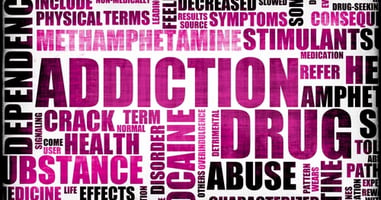Youth With ADHD May Have Increased Risk for Psychotic Disorders

Children and adolescents with attention-deficit/hyperactivity disorder (ADHD) may be at increased risk for subsequent psychotic disorders, according to a report published Wednesday in JAMA Psychiatry.
Given that psychotic disorders have a major effect on functioning, “early detection and appropriate management are essential to improve the prognosis of children diagnosed with ADHD,” wrote Mikaïl Nourredine, M.D., M.Sc., of the Centre Hospitalier Le Vinatier in Bron, France, and colleagues. The findings suggest that patients with ADHD need follow-up even after 18 years of age, the authors noted.
Nourredine and colleagues searched the MEDLINE, Scopus, PsycInfo, and Web of Science databases for original, peer-reviewed studies that included children and adolescents younger than 18 with ADHD, as well as a control group with no ADHD. For the purposes of this meta-analysis, a study had to include data on diagnoses of psychotic disorders (including schizophrenia, schizophreniform disorder, schizotypal personality disorder, schizoaffective disorder, delusional disorder, or brief psychotic disorder) that occurred after the ADHD diagnosis.
The authors identified 12 studies in which a diagnosis of ADHD was present and psychotic disorder was the outcome of interest, representing 124,095 children/adolescents with ADHD and 1.7 million controls. The prevalence of psychotic disorders among the ADHD population ranged from 0.7% to 12.5%, while the prevalence among the control population ranged from 0% to 4.2%. Altogether, the studies suggested that children and adolescents with ADHD were nearly five times as likely to be subsequently diagnosed with a psychotic disorder as those without ADHD.
“Many potential mechanisms could underlie the association between ADHD and subsequent psychosis,” the authors wrote, including shared genetic susceptibility, social or environmental factors, or prenatal factors such as diabetes during pregnancy or neonatal complications. The authors also noted the possible association between psychostimulant treatment and later risk of psychotic disorders, as well as the possibility that children and adolescents with early signs of a psychotic disorder may be misdiagnosed with ADHD.
More research is needed, the authors concluded, particularly studies with long follow-up periods to determine when psychotic disorders are most likely to develop, and studies that consider what may be linking psychotic disorders and ADHD.
For related information, see the Psychiatric News article “Study Finds Higher Risk of Psychosis With Amphetamines for ADHD.”
(Image: iStock/Chinnapong)
Don't miss out! To learn about newly posted articles in Psychiatric News, please sign up here.






